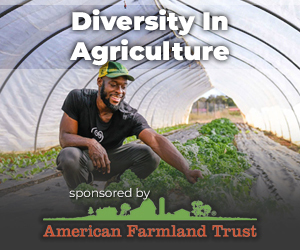David Friedberg, the founder of The Climate Corporation and a lifelong vegetarian, is drawing ire from the agricultural advocates for his “charity” of choice going into tonight’s final round of Celebrity Jeopardy!: Humane World for Animals, the anti-livestock activist group formerly known as the Humane Society of the United States.
The Center for the Environment and Welfare said it is pleading with the producers of the Jeopardy! series to more rigorously vet the nonprofits eligible to receive the $1 million grand prize money from the game show. While Charity Navigator shows that HWA currently has a high charitable rating, the organization (under its previous name HSUS) has seen its rating revoked multiple times by watchdog groups in the past decade or so. One rating site, CharityWatch, gives far harsher assessments of HWA, often slapping the activists with “C” and “D” ratings.
Among the complaints that the nonprofit has long endured under its HSUS name is that it doesn’t actually have a connection to local Humane Societies — rather, it has piggybacked off of the good work of local shelters, allowing that name recognition to help bring in roughly $170 million a year in donations. Much of the money it has received as donations has gone toward “administrative” costs and lobbying against animal agriculture. By some accounts, 44 percent of HWA’s budget is overhead.
“An organization with $92 million in offshore assets in the Caribbean doesn’t need — or deserve — another million-dollar handout,” said Jack Hubbard, executive director of Center for the Environment and Welfare. “Despite featuring homeless cats and dogs in fundraising commercials, only one percent of the group’s budget is given to local pet shelters via financial grants. The prize money should instead support the work of local pet shelters and their volunteers who help the hundreds of thousands of cats and dogs whose lives are in jeopardy across the country.”
The call to action against Friedberg and HWA comes at a time when President Donald Trump is already challenging how the U.S. defines charitable work. The Center for the Environment and Welfare has long challenged HSUS (and its new iteration HWA) over its spending, most recently pressing the organization to offload its substantial investments and donate them to local shelters in need rather than spending that money on “marketing materials” and supporting a staff of several hundred people, about a quarter of whom make more than $100,000 annually. CEO Kitty Block, a former lawyer for PETA, reportedly makes $650,000 annually.
“Make no mistake: HWA is a radical, scandal-ridden activist group,” Hubbard added.
Friedberg is a former Google employee and an agtech pioneer who now serves as CEO of Ohalo Genetics. At the age of 35, he sold his startup, The Climate Corporation, to Monsanto for $1 billion. The company has since been acquired by Bayer, and the suite of products is recognized today as Climate FieldView. The tools he created are used on millions upon millions of acres of U.S. farmland.
Tonight, he will be competing against comedian and filmmaker W. Kamau Bell, who’s charity is Donors Choose, and comedian and writer Robin Thede, who’s charity is Women in Film.








